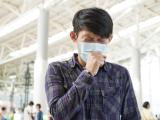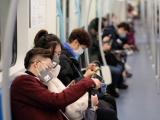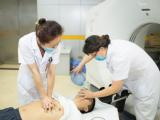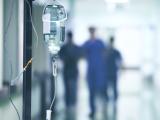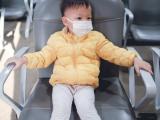Mar 31, 2003 (CIDRAP News) – In an effort to slow the spread of severe acute respiratory syndrome (SARS), Hong Kong health officials have sealed off a large apartment building where 107 people became infected.
Officials imposed a 10-day "isolation order" on Block E, one of ten 35-story buildings in the Amoy Garden apartment complex, according to the Hong Kong Health Department and the World Health Organization (WHO). The announcement came today as Hong Kong reported 80 news SARS cases, for a total of 610 since the outbreak began Mar 12. Sixty-four of the new patients were Amoy Garden residents, Hong Kong officials reported.
The isolation order seemed to imply that the illness can spread by means other than face-to-face contact. WHO officials said they still believe the disease spreads mainly by close contact, but reported that epidemiologists were considering the possibility that systems in the building somehow spread infectious bodily secretions.
WHO today reported a global total of 1,622 cases in 14 countries, with 58 deaths, an increase of 72 cases and 4 deaths since the last compilation on Mar 29. The United States had 69 cases but no deaths as of today, according to the Centers for Disease Control and Prevention (CDC).
The Hong Kong apartment quarantine was one of several SARS developments in the past few days. In the United States, worried CDC officials speaking at a Mar 29 news briefing broadened their warning about nonessential travel to Asia and said SARS patients should stay home from work and school for 10 days after their symptoms go away.
CDC Director Julie Gerberding, MD, said, "We are very concerned about the spread of this virus, especially in Asia. . . . What we know about respiratory viruses suggests that the potential for infecting large numbers of people is very great. We may be in the early stages of what could be a much larger problem as we go forward in time."
CDC widened its advisory against nonessential travel to include Singapore and all of China. Previously the advisory included Hong Kong, China's Guangdong Province, and Hanoi, Vietnam.
Besides the advice to stay home for 10 days after recovery, CDC listed several more infection control recommendations for patients and their families. If possible, patients should wear a surgical mask during close contact with others, officials said. However, healthy members of a patient's household need not restrict their outside activities.
In expressing concern about the risk of a mushrooming epidemic, Gerberding said CDC is "desperate to learn more about the scope and magnitude" of the SARS problem in China, "because that really I think will be the biggest predictor for where this will be headed over the next few weeks." The illness now known as SARS first surfaced as outbreak of atypical pneumonia in Guangdong Province last November, later spreading to Hong Kong. Chinese officials have said that 792 cases occurred in the province from November through February.
Gerberding also said some SARS patients seem to be "extremely efficient transmitters" of the disease. In Hanoi, for example, one patient transmitted the illness to 56% of the healthcare workers who came in contact with him or her, she said.
One of the latest SARS victims was WHO physician and infectious disease specialist Carlo Urbani, 46, who investigated the first SARS cases in Hanoi. "Dr Urbani was the first WHO officer to identify the outbreak of this new disease, in an Amerian businessman who had been admitted to a hospital in Hanoi," WHO officials said in statement. "Because of his early identification of the disease, global surveillance was heightened and many new cases have been identified and isolated before they infected hospital staff. In Hanoi, SARS appears to be coming under control."
Concerning the cause of SARS, CDC officials said evidence supporting a new coronavirus continues to grow. They said they have developed a test that detects antibodies to the virus. "We now actually have two antibody tests that look quite promising and seem to be reproducible in different laboratories," said James Hughes, MD, director of the National Center for Infectious Diseases. He added that CDC is preparing to provide the test to other public health labs so that it can be made available locally.
In other news today, the Associated Press reported that Hong Kong physicians have successfully treated SARS patients with serum from other patients who previously recovered from the illness. Leung Ping-Chung, a surgeon at Prince of Wales Hospital, was quoted as saying that serum from 20 recovered patients was a "life-saving treatment" for some patients who had severe cases. Successful use of the serum indicates that people who had the disease developed antibodies to fight the virus, the report noted. This is apparently the first report of an effective treatment other than general supportive care.
Hong Kong officials, while reporting 80 new SARS patients today, also said 79 patients have recovered and been discharged from hospitals since the outbreak began.
See also:
WHO's Mar 31 update on SARS
http://www.who.int/csr/sarsarchive/2003_03_31/en/
Transcript of CDC's Mar 29 news briefing
http://www.cdc.gov/media/transcripts/t030329.htm



